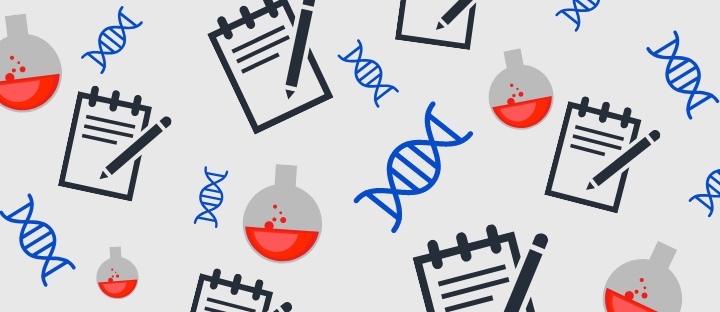#ScienceSaturday posts share exciting scientific developments and educational resources with the KAND community. Each week, Dr. Dylan Verden of KIF1A.ORG summarizes newly published KIF1A-related research and highlights progress in rare disease research and therapeutic development.
KIF1A-Related Research
In the rare disease space, a common and straightforward question is: How rare is the disease? But the answer is less straightforward; technology, accessibility, and transparency are all barriers to the diagnostic journey. KIF1A mutations have also been found in patients who were diagnosed with other disorders including ALS, Charcot Marie Tooth Disease, Rett Syndrome, and cerebral palsy.
Even KAND-associated diseases like hereditary spastic paraplegias represent umbrellas, of which KIF1A mutations are one possible cause. Expanding genetic testing in these disease groups is critical for understanding the full scope of KAND. In this week’s #ScienceSaturday, groups in South Africa and Turkey identified KIF1A mutations in broader spastic paraplegia cohorts.
The mutational profile in a South African cohort with inherited neuropathies and spastic paraplegia
In this study, 61 patients with neuromuscular disorders underwent sequencing to identify possible pathogenic mutations. The diagnoses represented included HSP, Charcot Marie Tooth disease, hereditary motor neuropathy, and demyelinating disorders.
There are many subtypes of HSP with their own symptoms and causes. The researchers were able to identify likely pathogenic candidates for 14/29 patients with spastic paraplegia. Of those, 2 were found to have KIF1A mutations with symptoms matching HSP30. Both of these mutations, A255D and T341P, are located in KIF1A’s motor domain.
Genetic and Clinical Features of Hereditary Spastic Paraplegia in Childhood: Identification of Eight Novel Variants
In this study, researchers probed the genetics and clinical history of 18 patients from 17 families with spastic paraplegia; one of these patients had another motor domain KIF1A variant, W313C, and presented complex HSP-30 with developmental delay and ataxia.
*What’s a pre-print? Check out this #ScienceSaturday post to learn more.
Both of these studies reflect a global effort to understand the genetic underpinnings of disorders so people can find the right treatments sooner. Similar disease traits between patients with or without KIF1A mutations can also give clues for new inroads to therapeutic development; treatments for those patient populations may be applicable to KAND patients with overlapping symptoms.
Rare Roundup
A Family Guide: Navigating Life After a Rare Genetic Diagnosis
The diagnosis of a rare genetic disorder is an invaluable puzzle piece for many families, but it’s only the beginning of a long journey that impacts almost every corner of life. Simon’s Searchlight has created a guide to help newly diagnosed families get their bearings and navigate this new landscape by breaking down manageable steps and priorities. We’re grateful for resources like these and hope you will share them with your loved ones.
FDA Launches Pilot Program to Help Further Accelerate Development of Rare Disease Therapies
One frustrating aspect of traditional drug development, especially for rare disease communities, is the tempo of regulatory decisions on potential drugs. Many applications suffer from small flaws that could be easily remedied, but sponsors aren’t told this until after the submission date; receiving feedback earlier and being able to ask questions could make for stronger proposals based on stronger science, and that means a better chance at meaningful treatments
To create a more impactful therapeutic development system, the United States Food and Drug Administration launched its Support for clinical Trials Advancing Rare disease Therapeutics (START) Pilot Program. This program will encourage therapeutic sponsors to communicate with FDA officials more regularly and as needed to improve their clinical development of gene- and cell-based therapies. In addition to benefiting awarded sponsors, this pilot program will help create best practices of communication with the FDA during rare disease therapeutic development.


My soon has this result adn
Codon 612 protein kif1a
(P.thr612met)
Id 211276